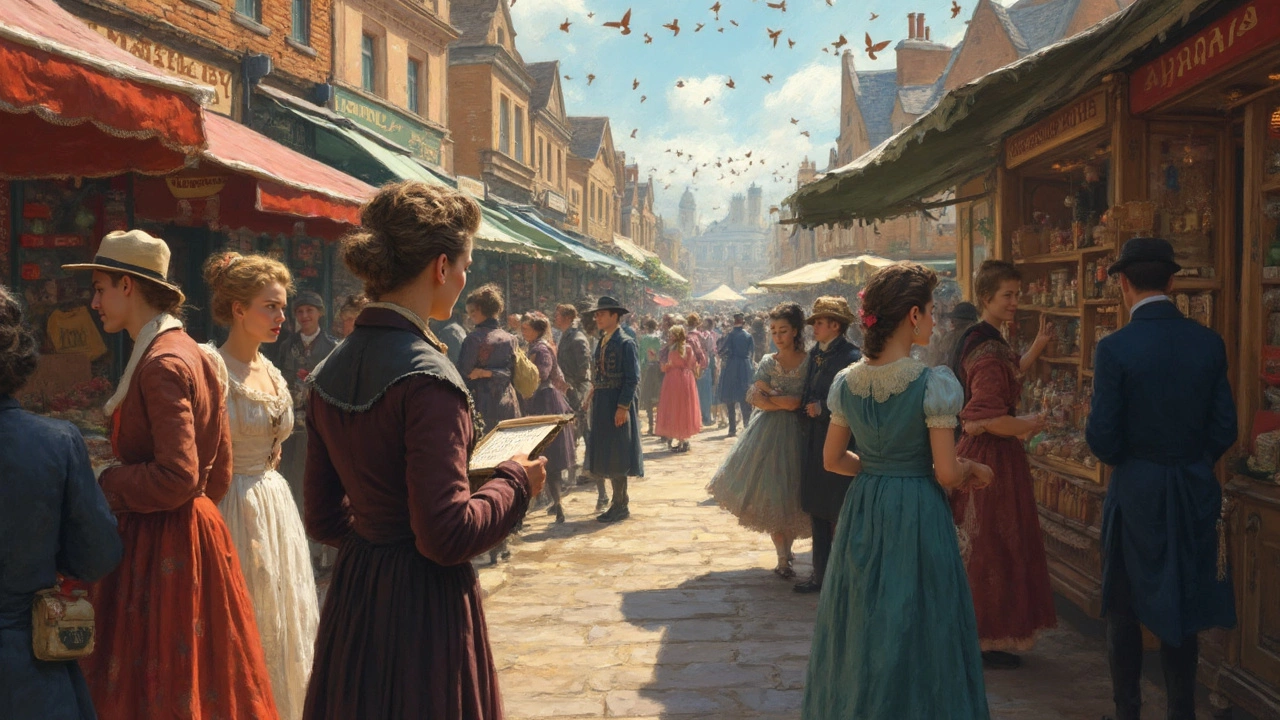Jane Austen: Her Books, Influence, and Why She Still Matters Today
When you think of Jane Austen, a British novelist whose sharp wit and quiet observations reshaped English fiction in the early 1800s. Also known as the mother of modern romantic fiction, she didn’t write about kings or battles—she wrote about women deciding who to marry, how to survive in a world that didn’t give them much power, and the quiet moments that changed everything. Her books aren’t just old stories. They’re still read because they feel real. You don’t need to know the year 1813 to understand Elizabeth Bennet’s frustration or Emma Woodhouse’s well-meaning meddling. Her characters aren’t perfect. They’re messy, funny, and stubborn—and that’s why we still care.
Her most famous book, Pride and Prejudice, a story about first impressions, social pressure, and falling in love against the odds, has sold over 20 million copies worldwide. It’s not just popular—it’s a cultural touchstone. People quote it. They make movies about it. They argue over whether Mr. Darcy is a romantic hero or a controlling jerk. Then there’s Emma, a novel about a clever young woman who thinks she knows best, until life proves her wrong. It’s not a love story with grand gestures. It’s about learning to see people clearly. That’s why modern readers, even those who don’t usually read classics, find her work refreshing.
What makes Austen different from other writers of her time? She didn’t need dragons or duels to create tension. Her drama lived in a glance, a letter left unread, or a silence after a proposal. She wrote about the small choices that shape a life—and those choices still matter today. Whether you’re navigating family expectations, workplace politics, or your own self-doubt, her books hold up a mirror. You don’t need a corset to recognize her truths.
She didn’t write for fame. She published anonymously. And yet, her voice outlasted empires. Today, you’ll find her books in libraries, book clubs, and on Kindle screens across India and beyond. If you’ve ever wondered why so many people still talk about her, it’s because her stories weren’t about the past. They were about people—real, flawed, and wonderfully human.
Below, you’ll find posts that dig into why her work still connects, how her themes show up in modern storytelling, and where to find the best editions of her novels—whether you’re reading for the first time or revisiting an old favorite.

Is Jane Austen Historical Fiction? Unveiling the Genre
The debate over whether Jane Austen's novels fall under the category of historical fiction piques the curiosity of literary enthusiasts. This article delves into the defining characteristics of historical fiction and compares them to Austen's works. It sheds light on the historical context within Austen's stories and the author's insightful portrayal of her contemporary society. Readers will gain a better understanding of Austen's place in the literary world.
View More